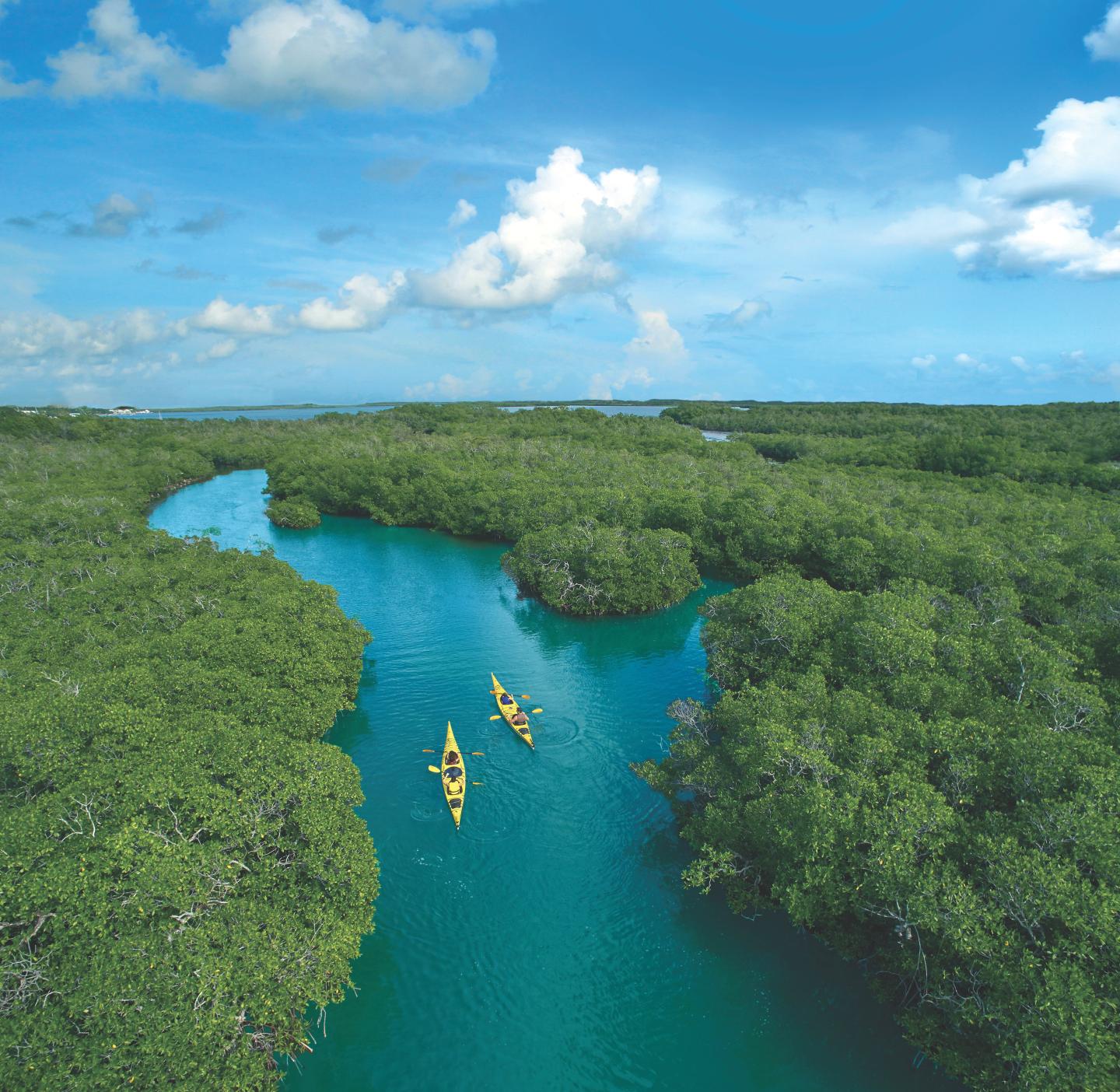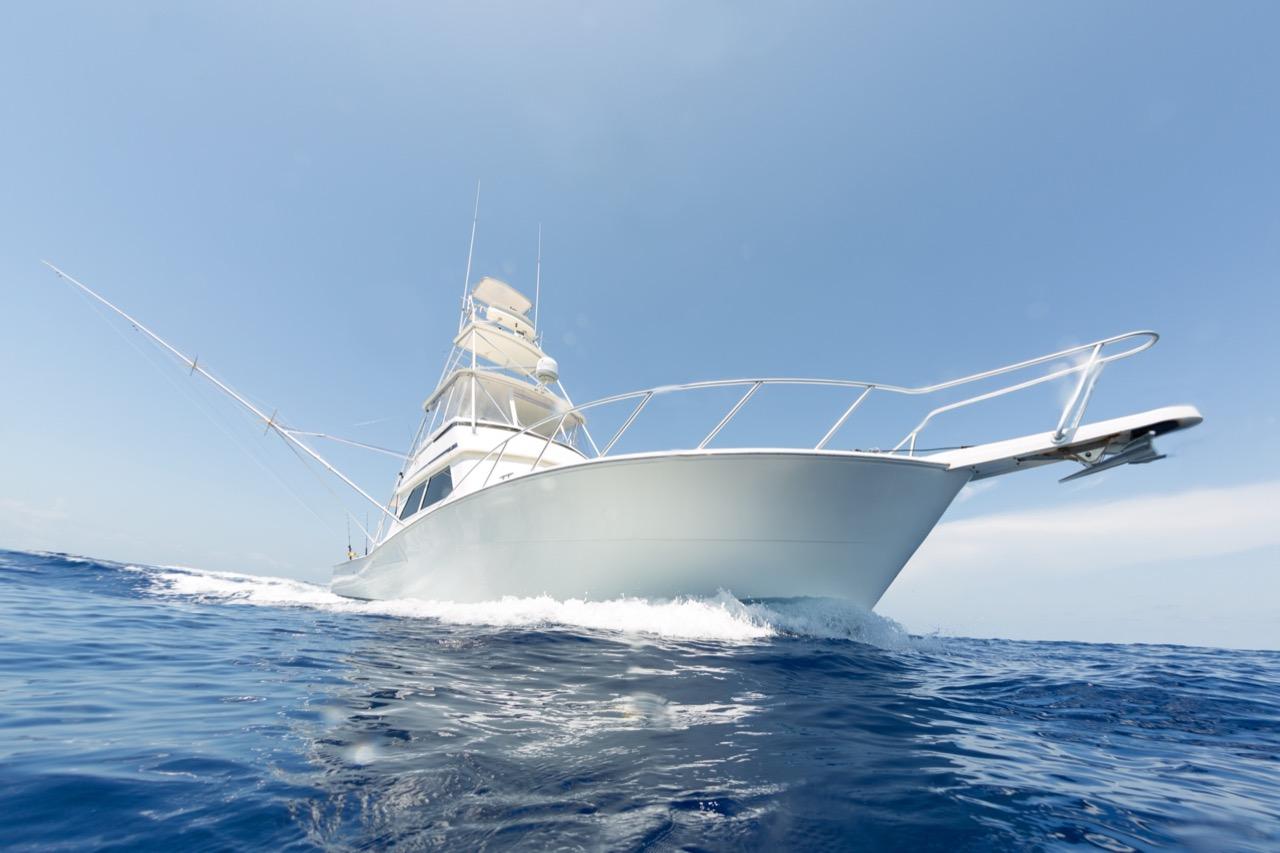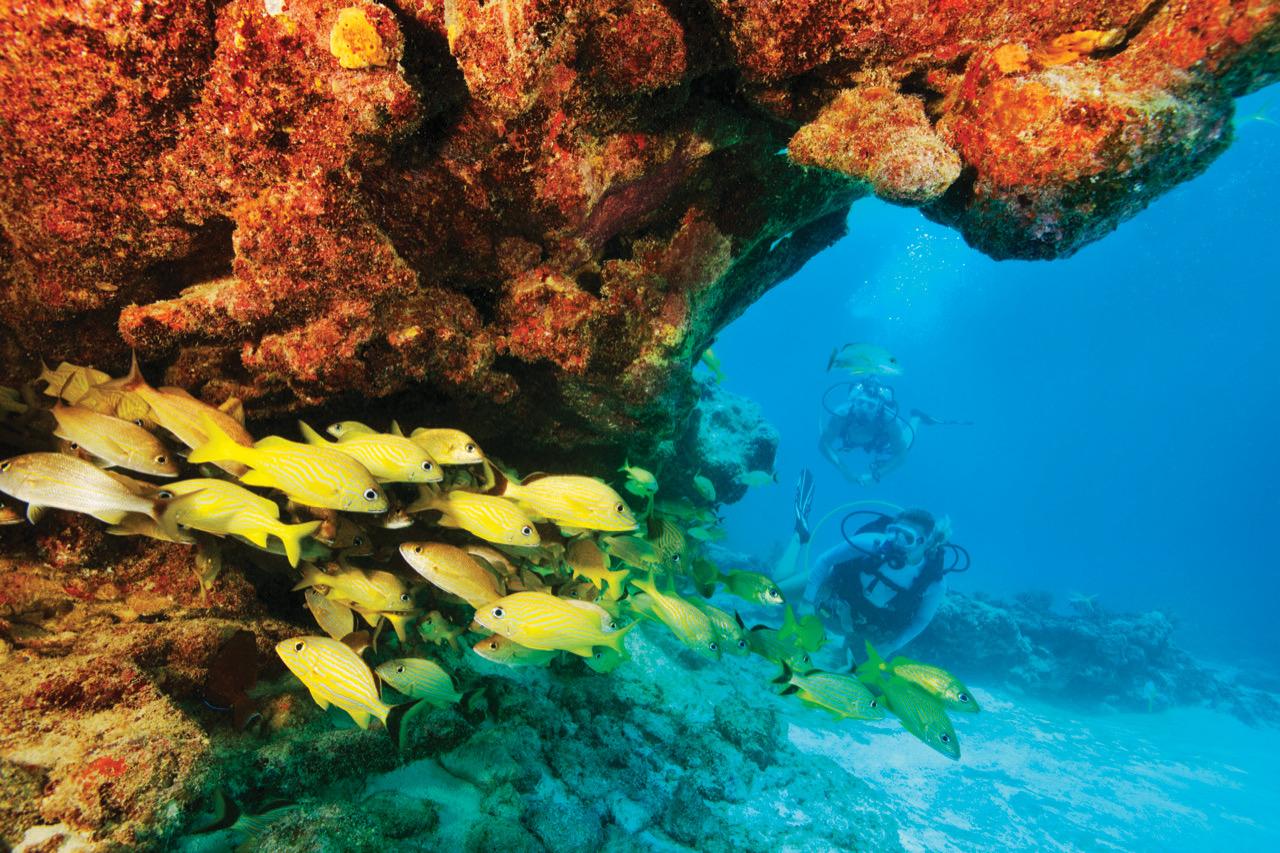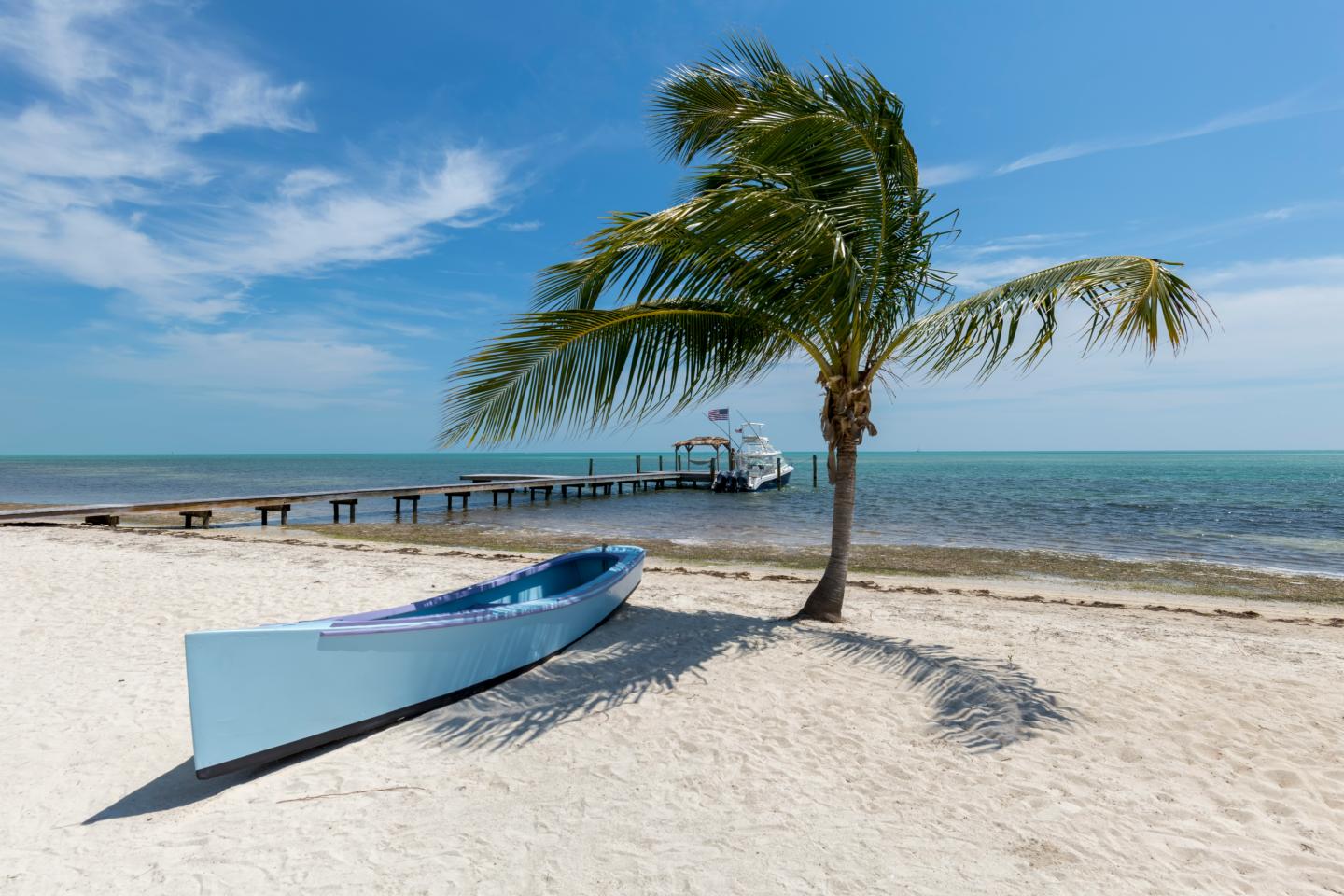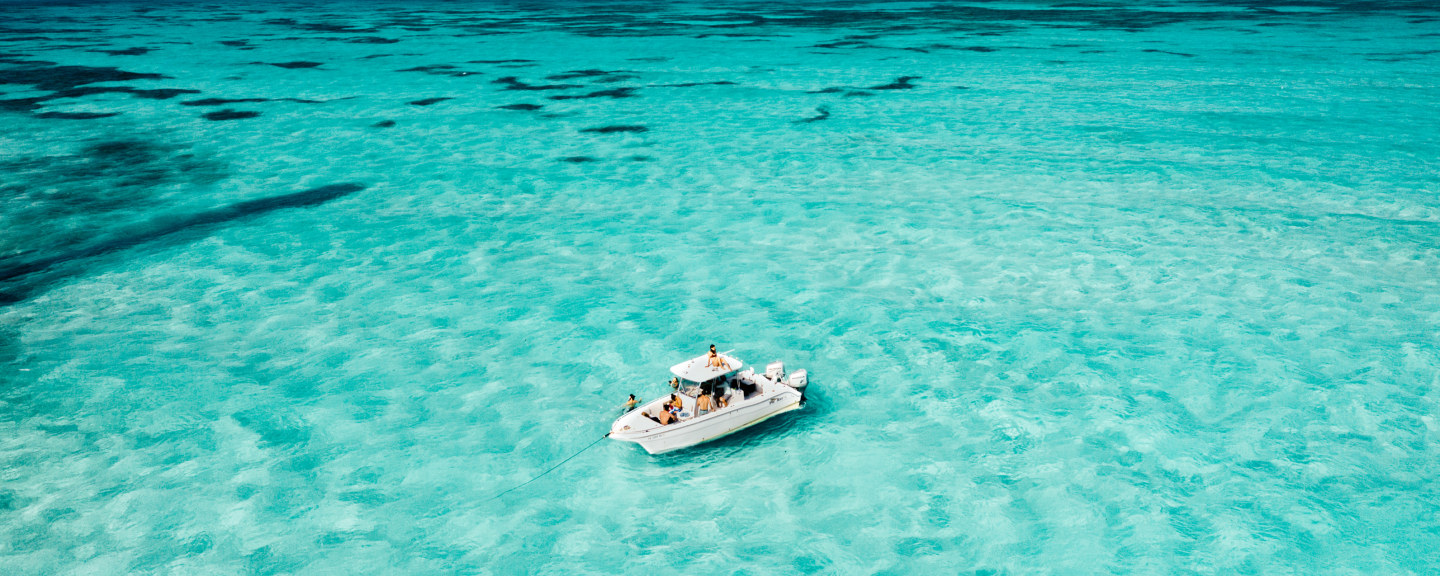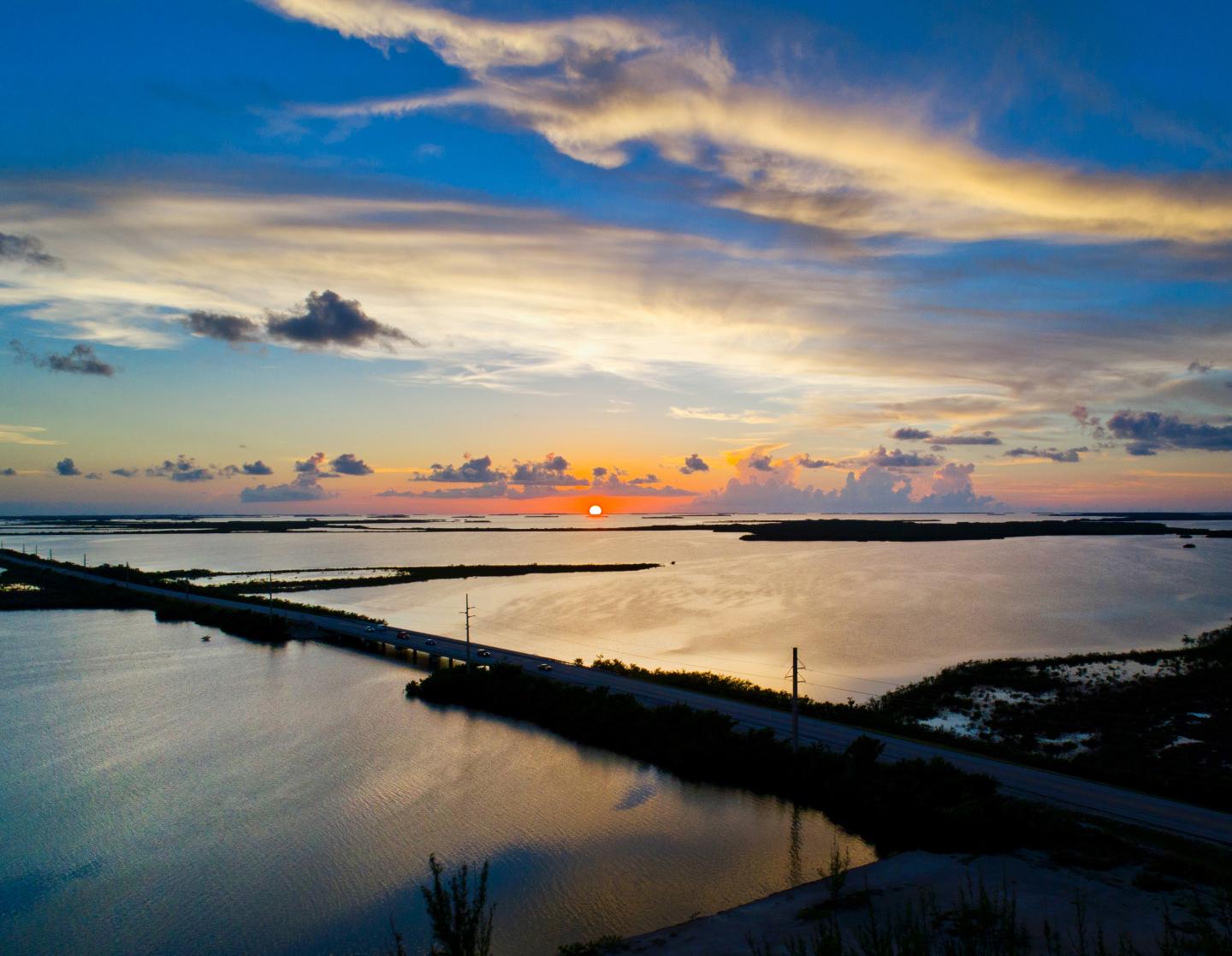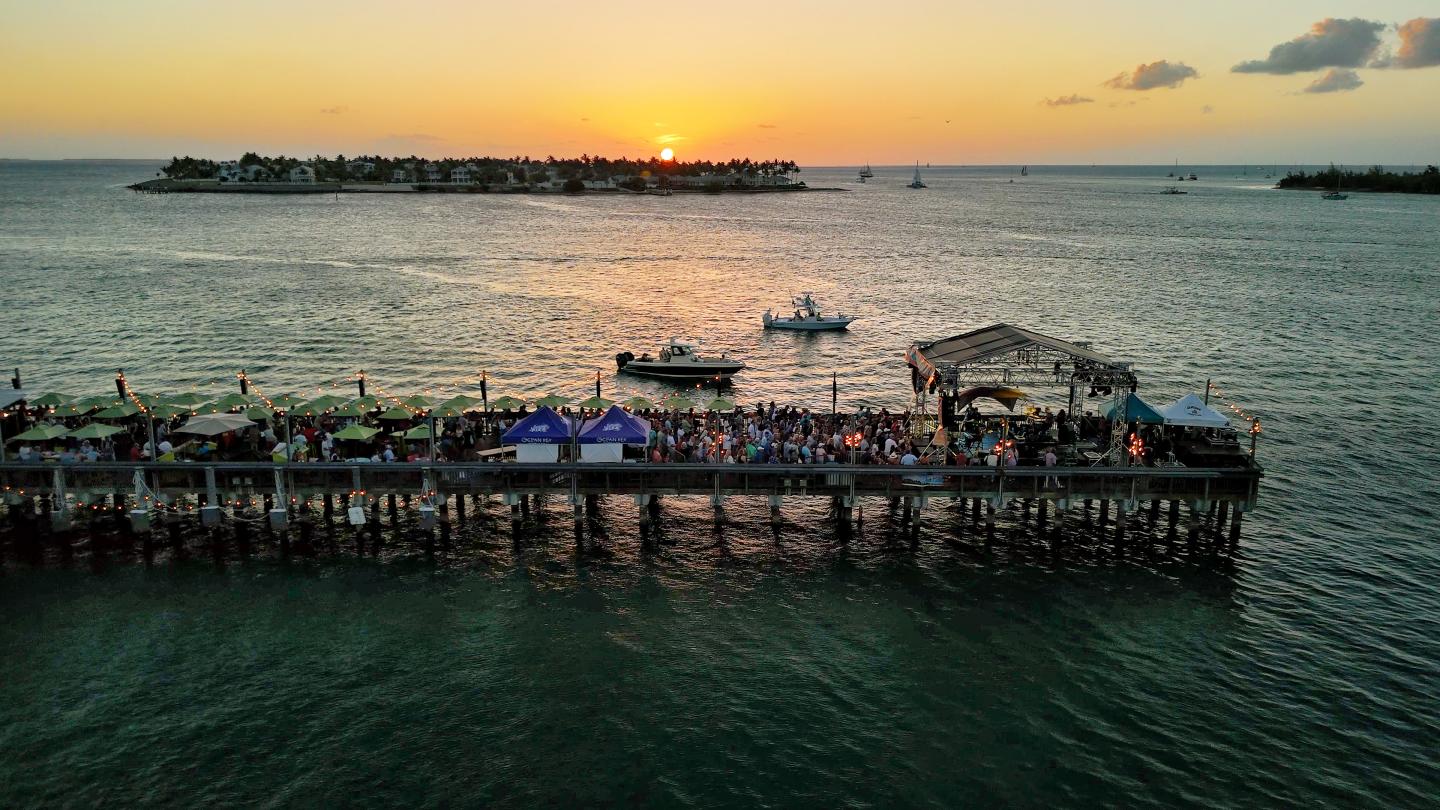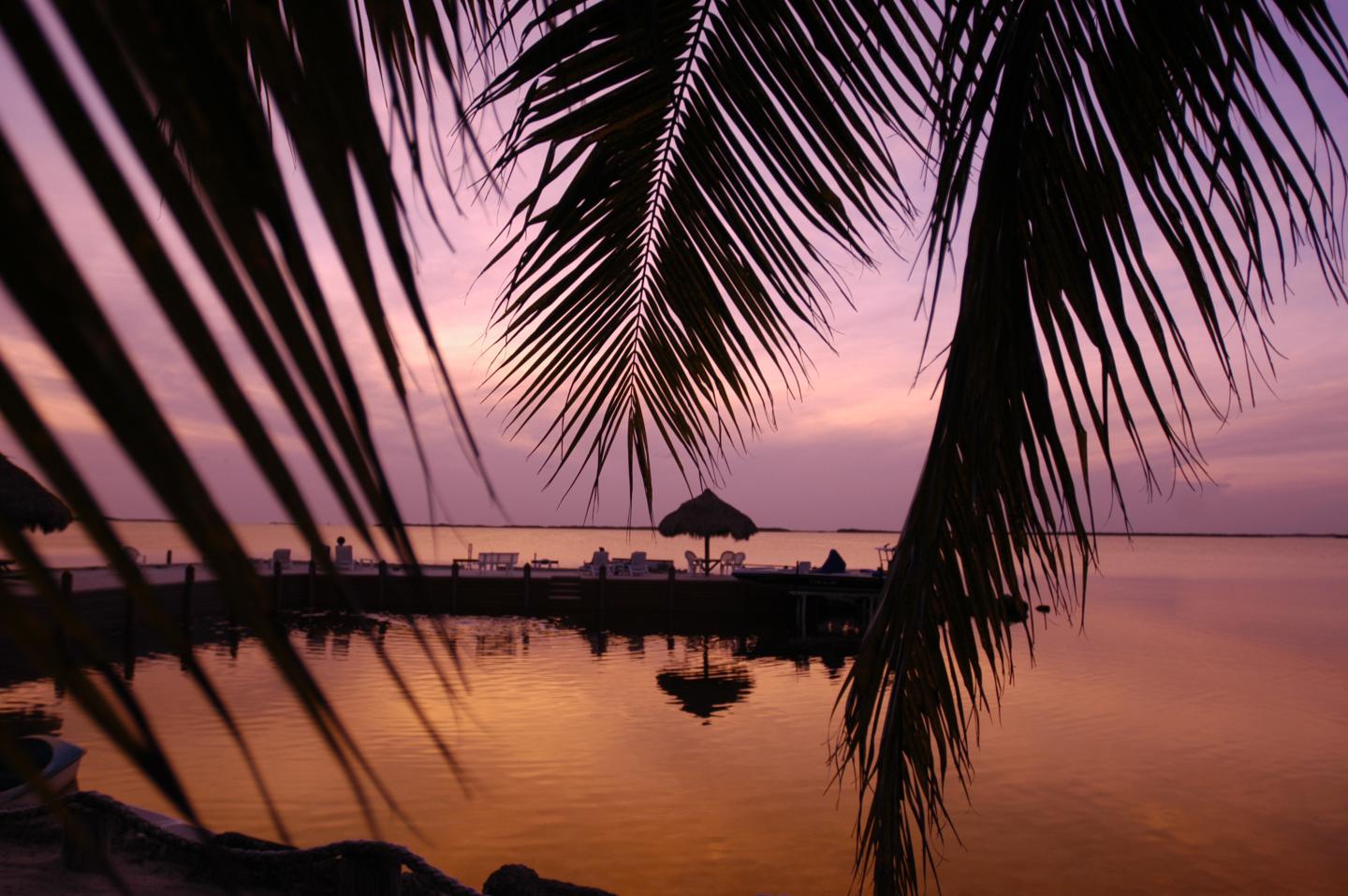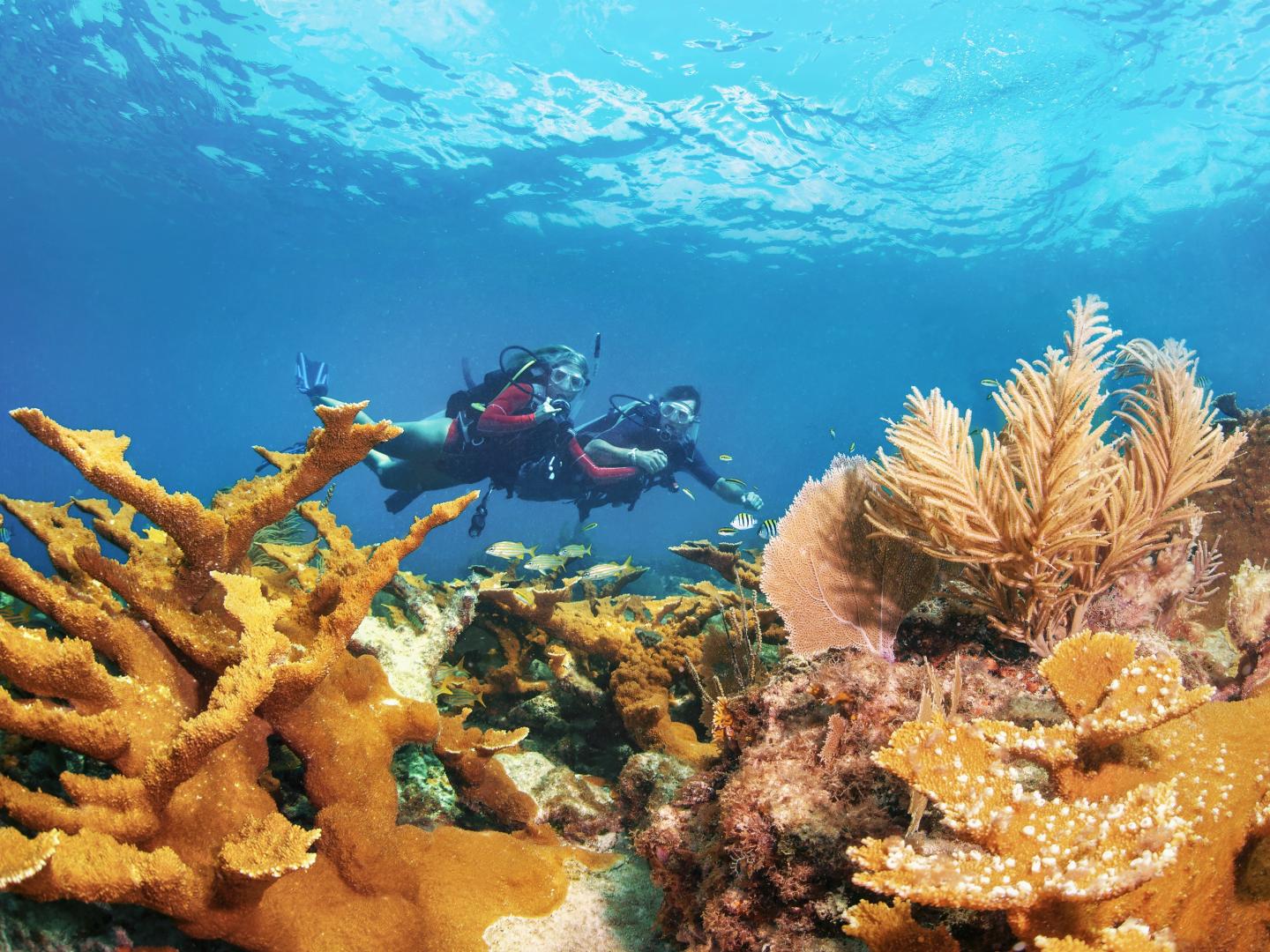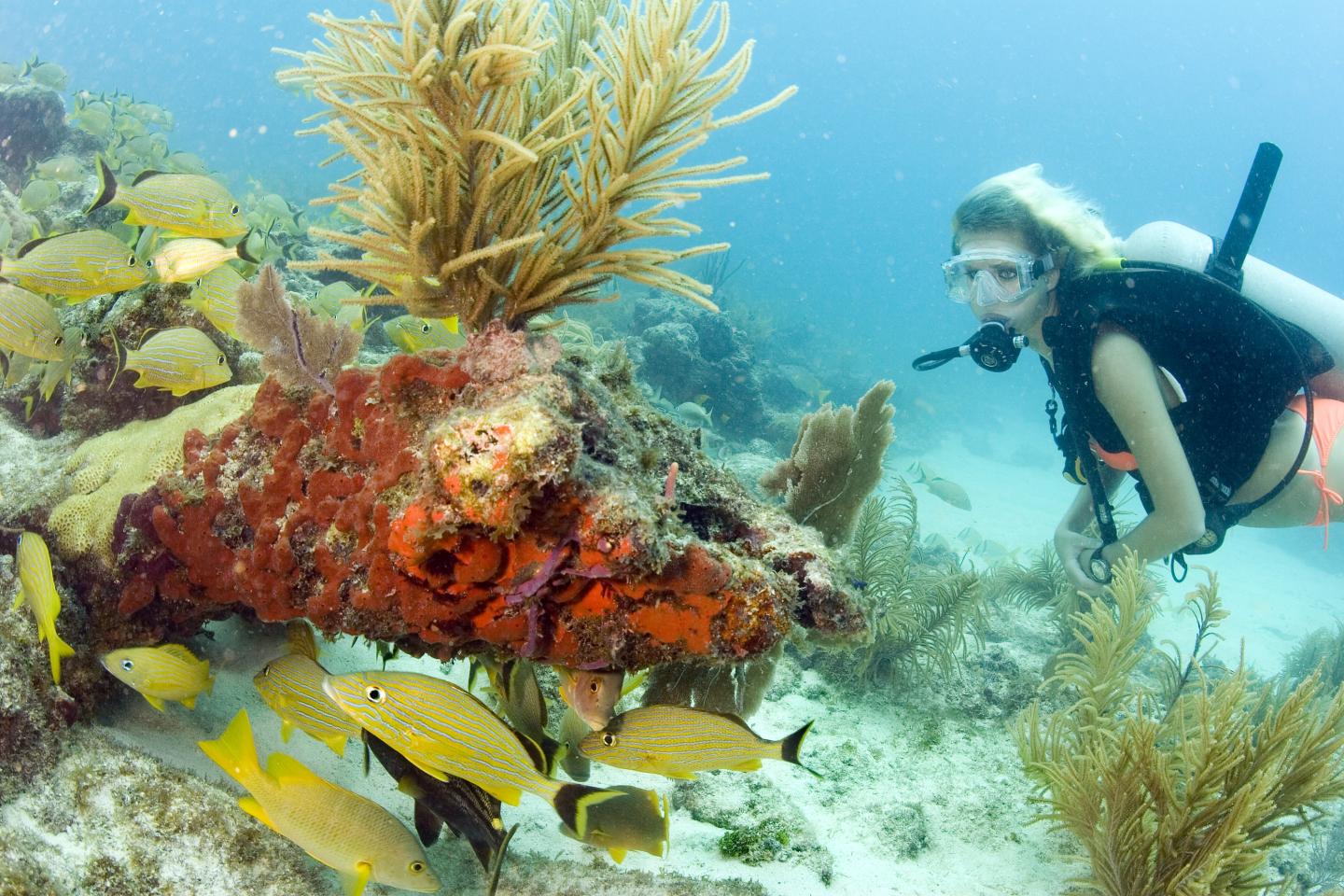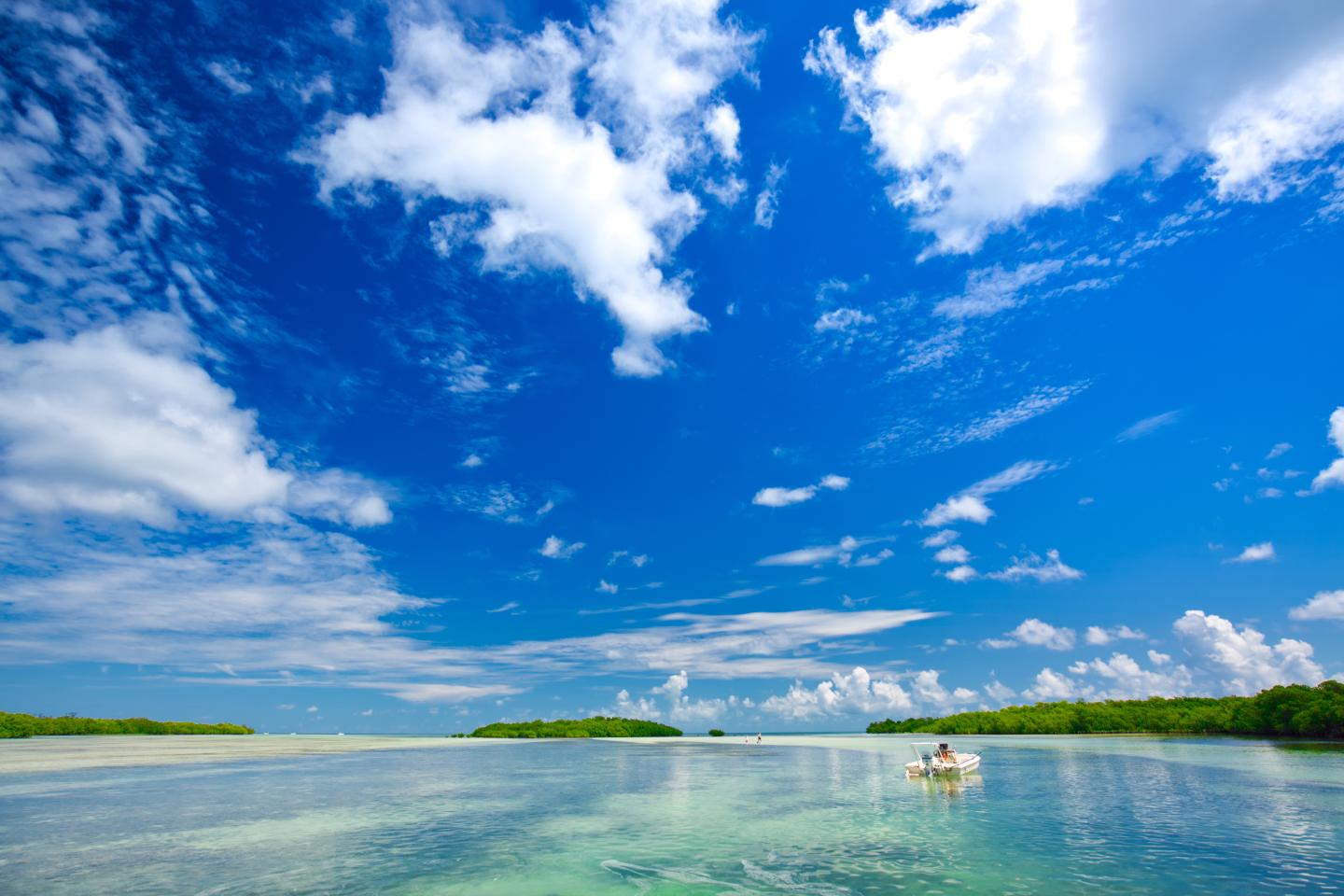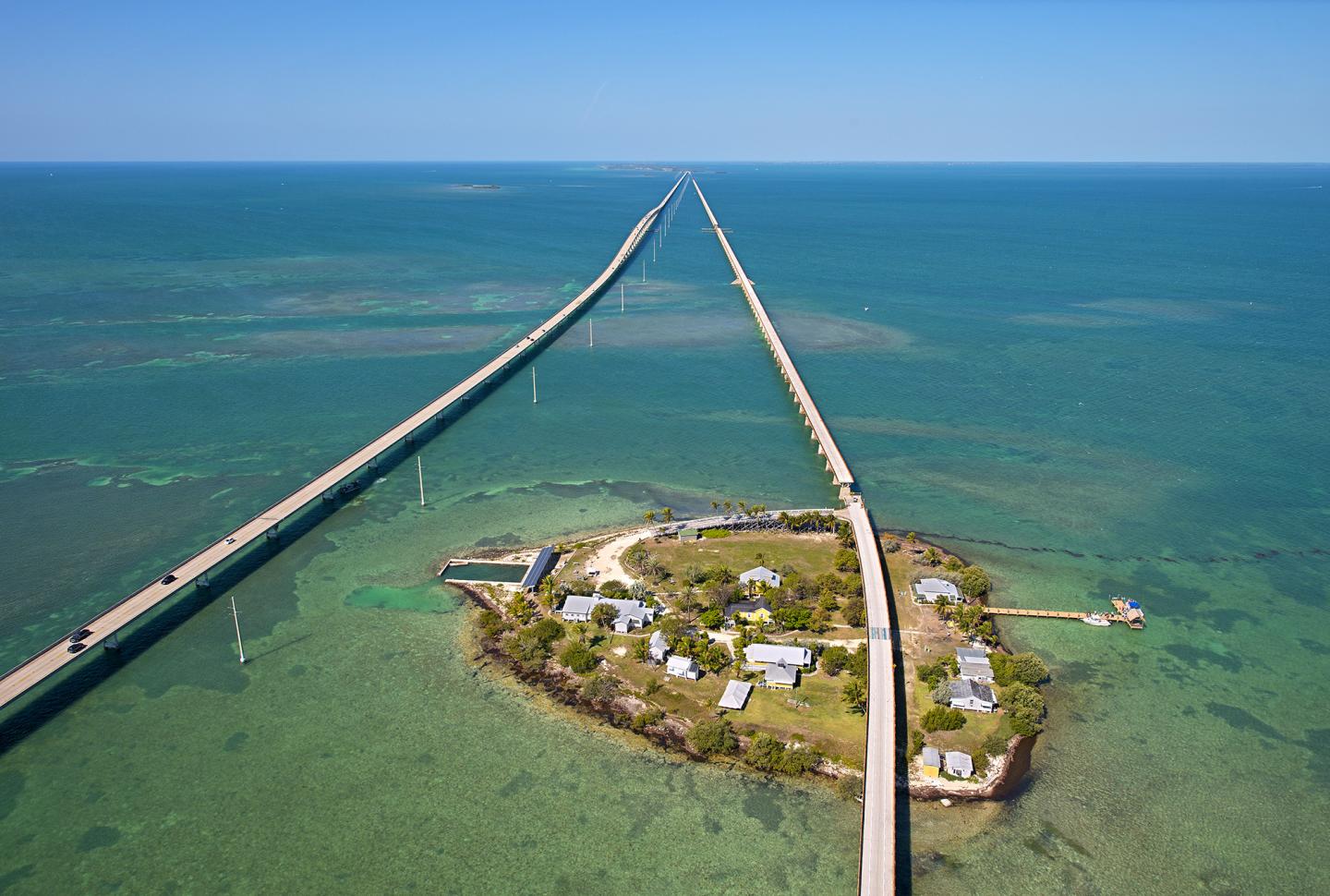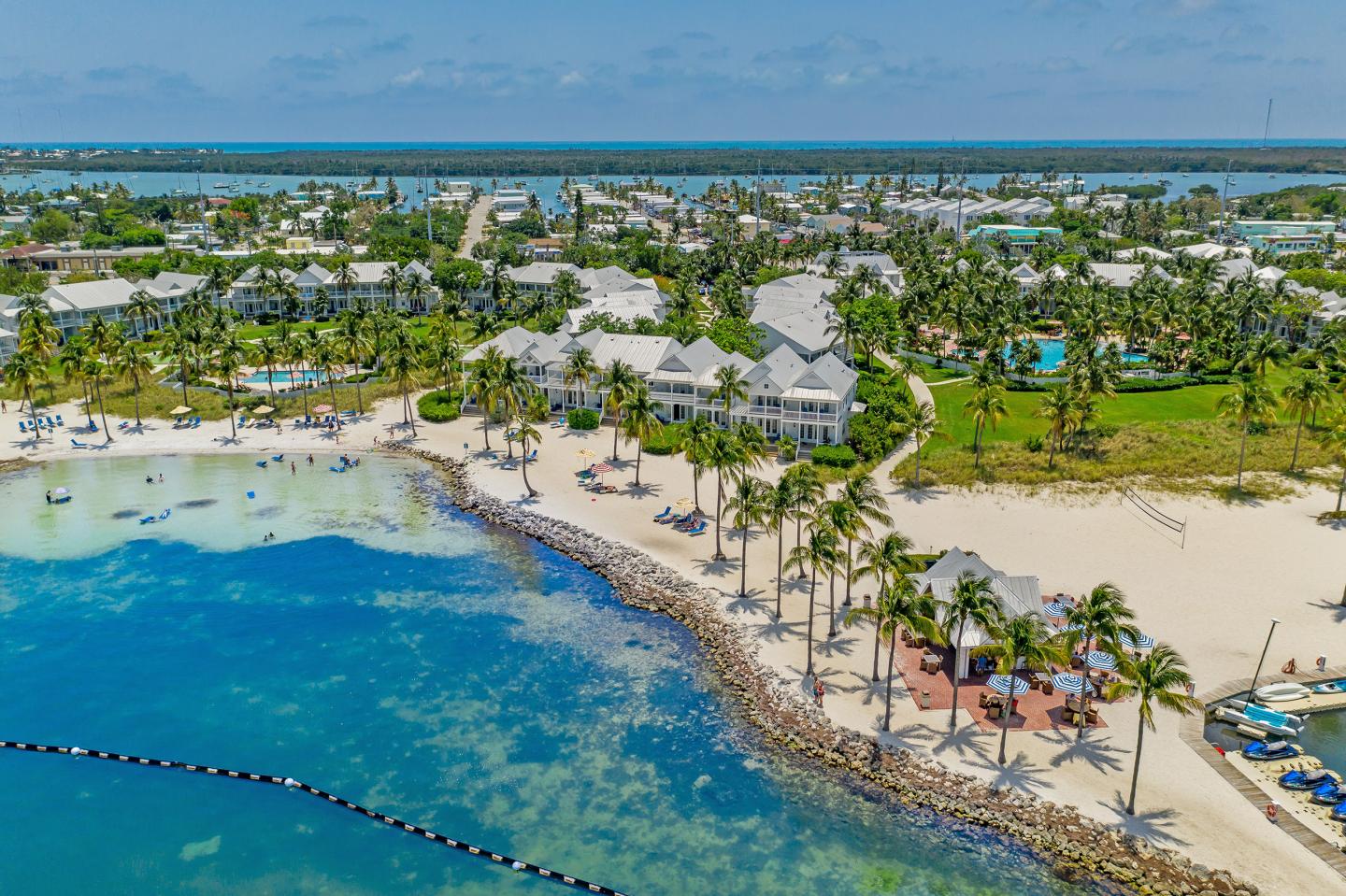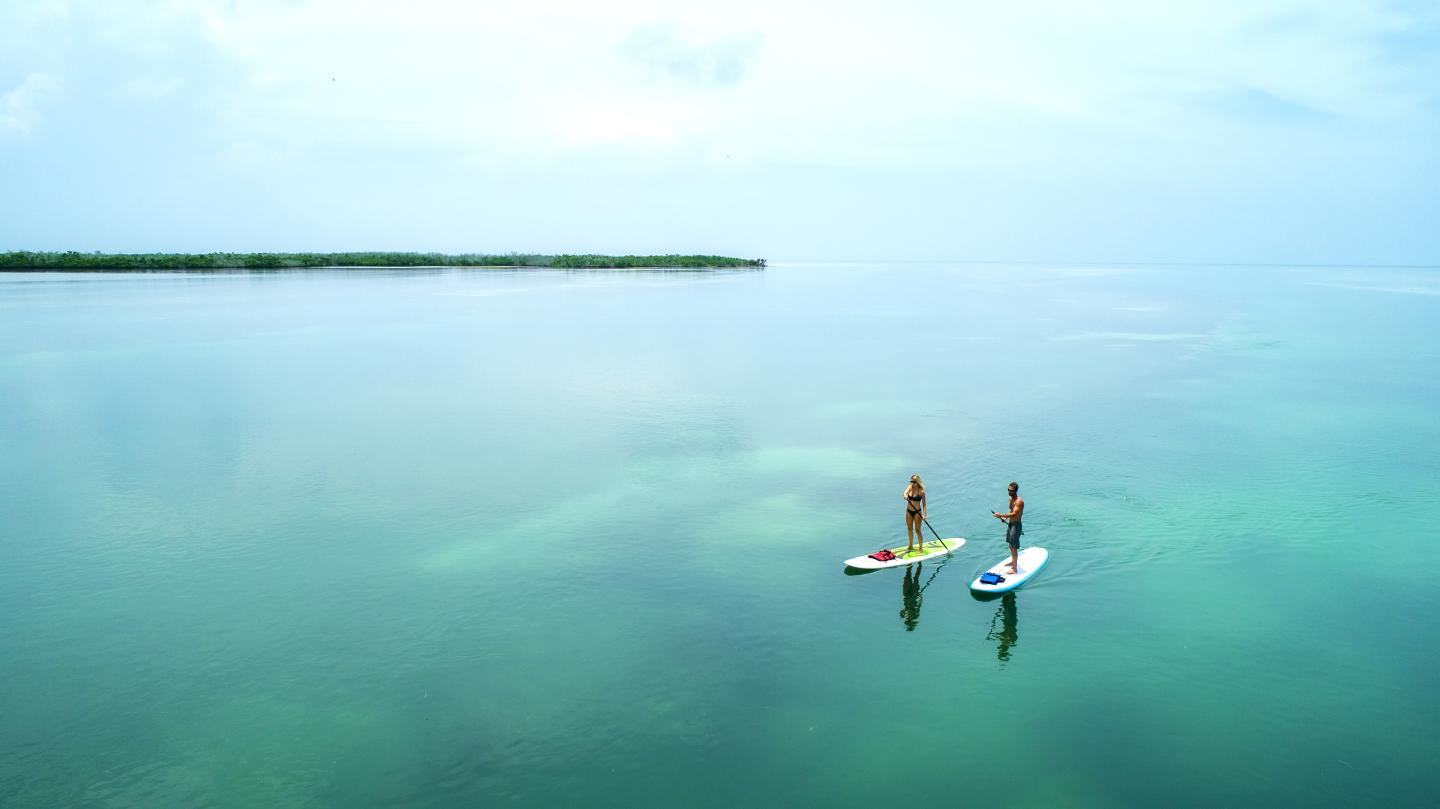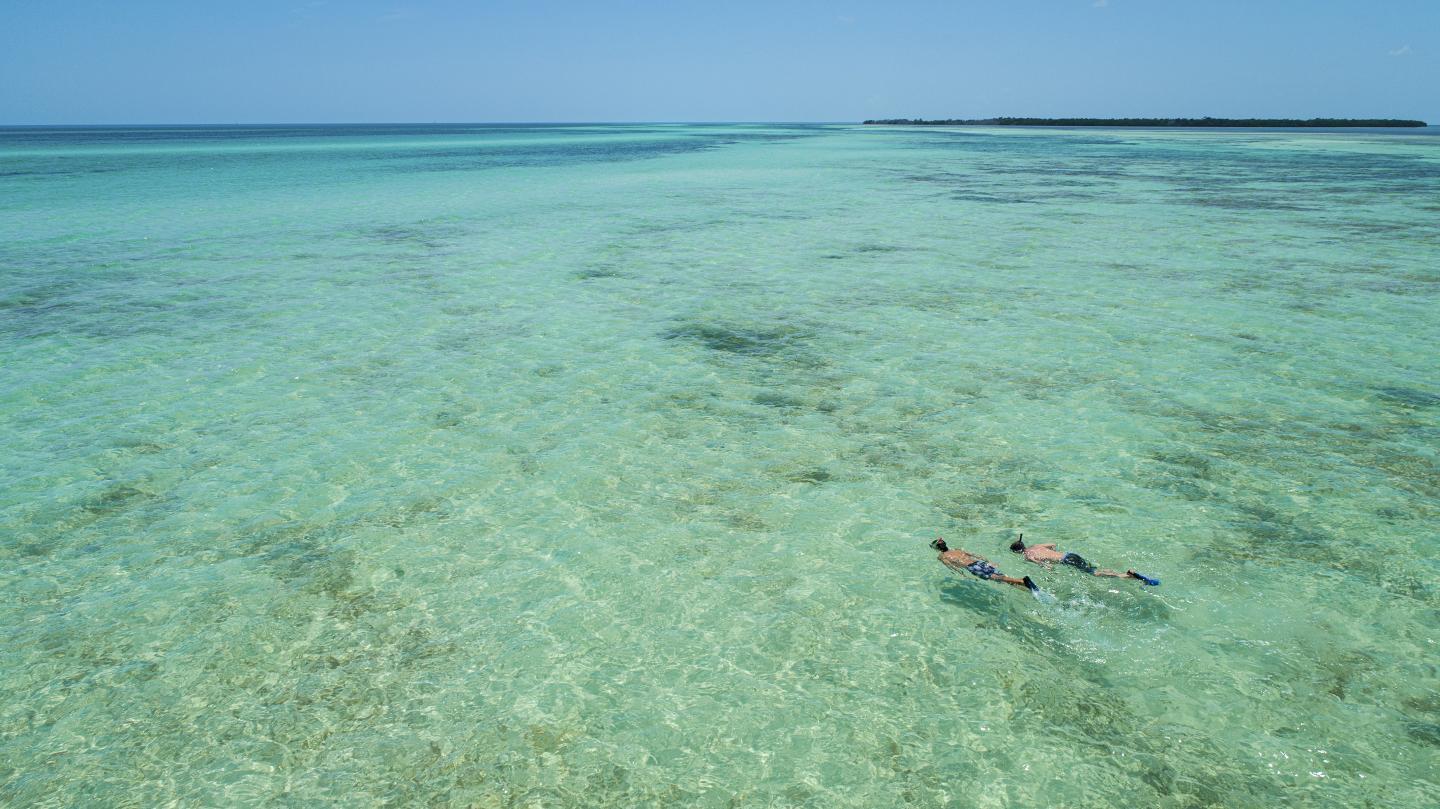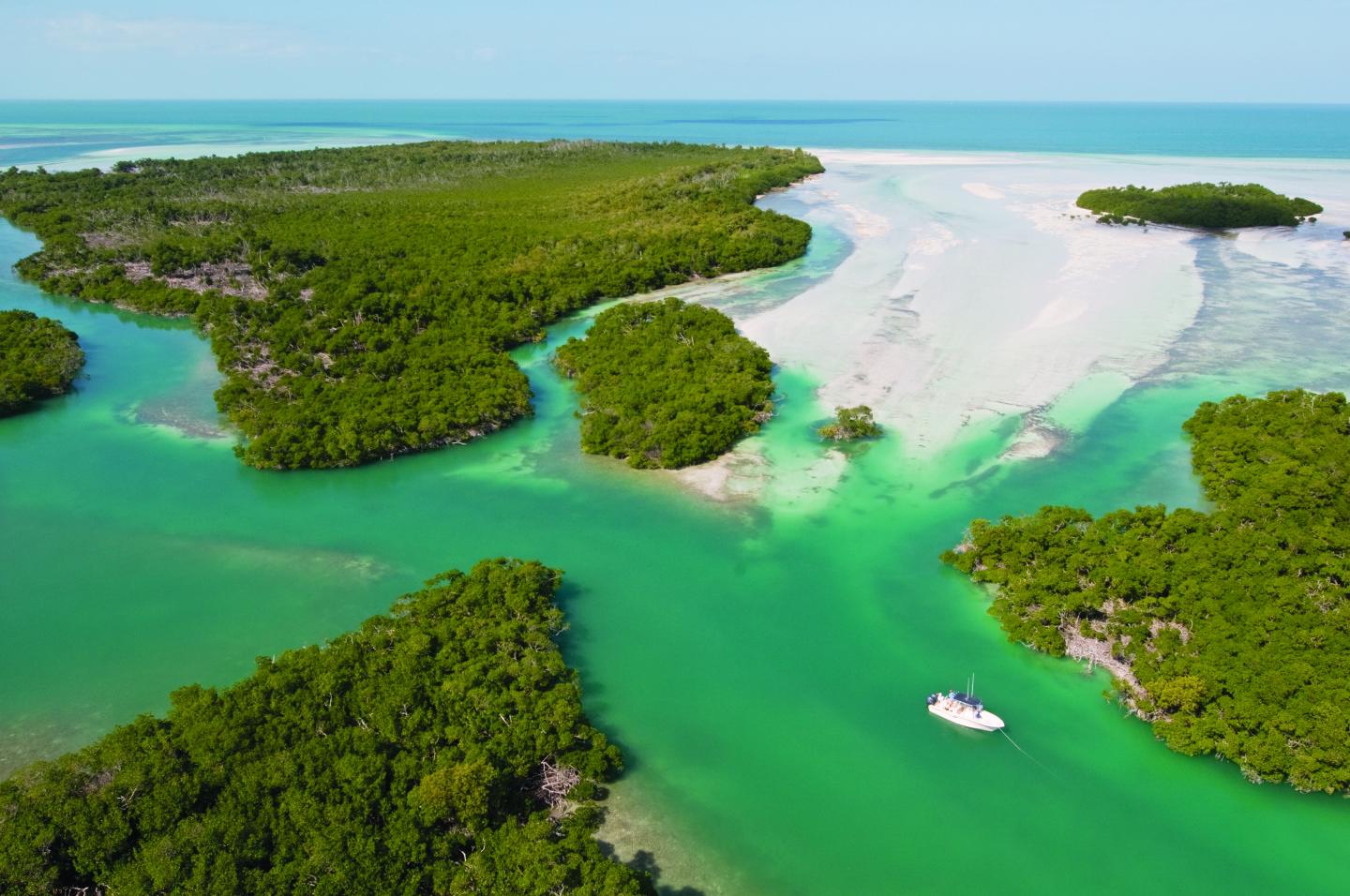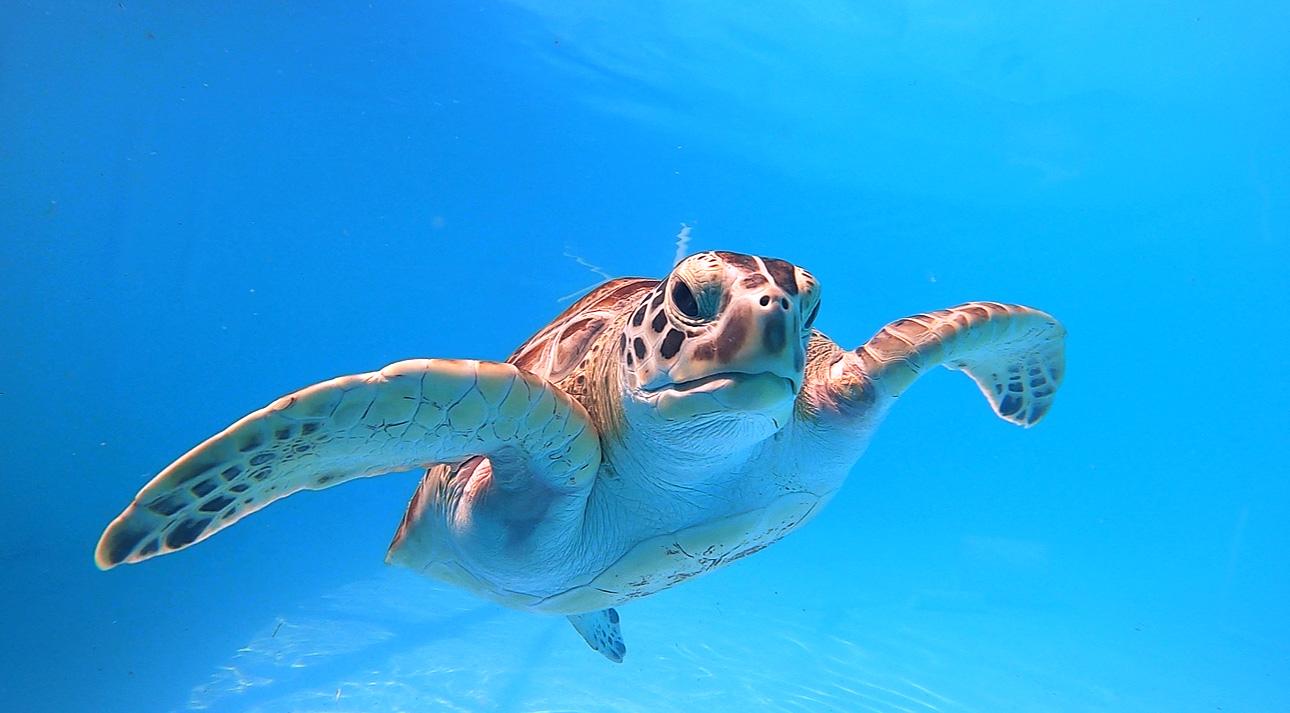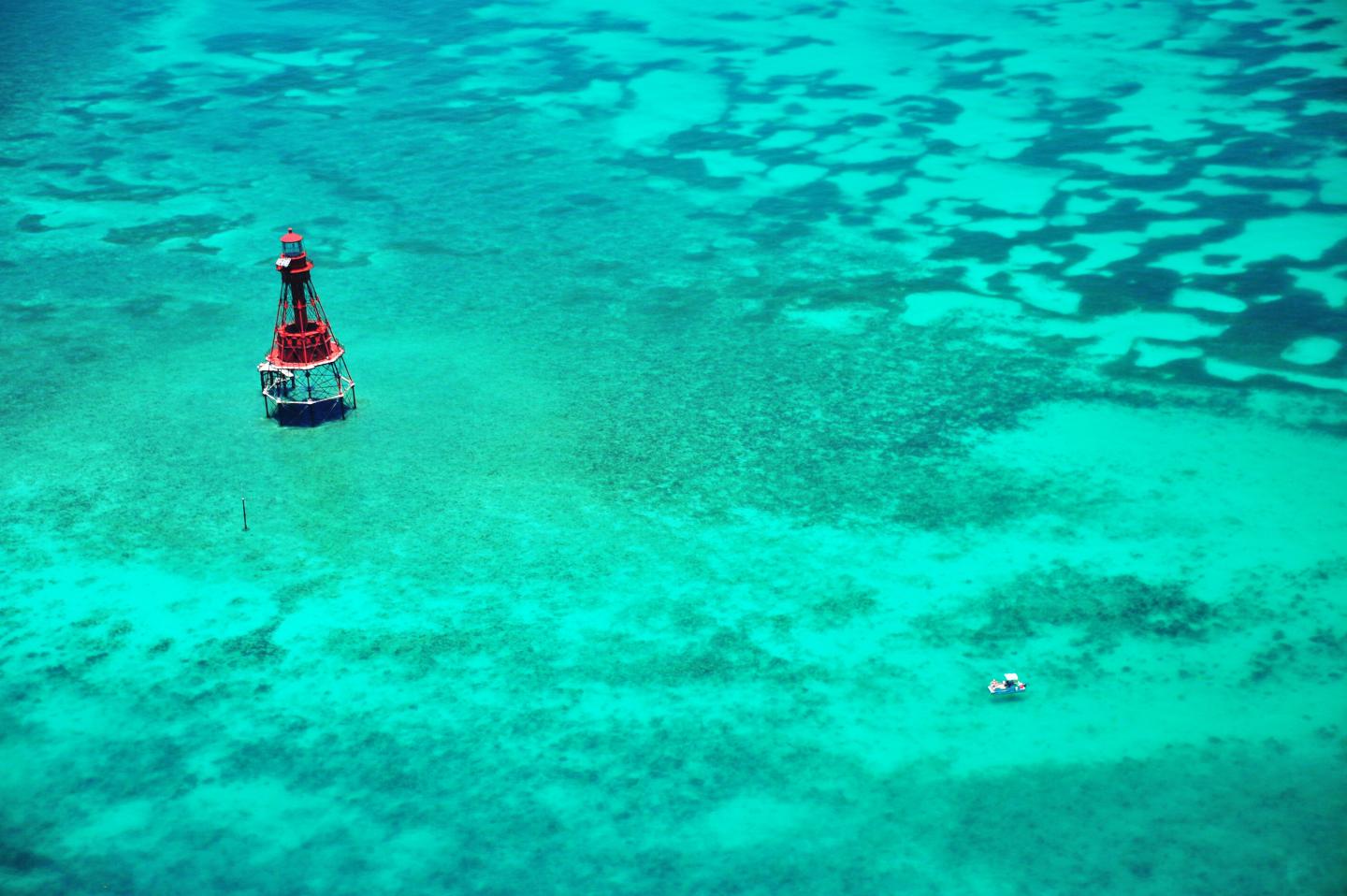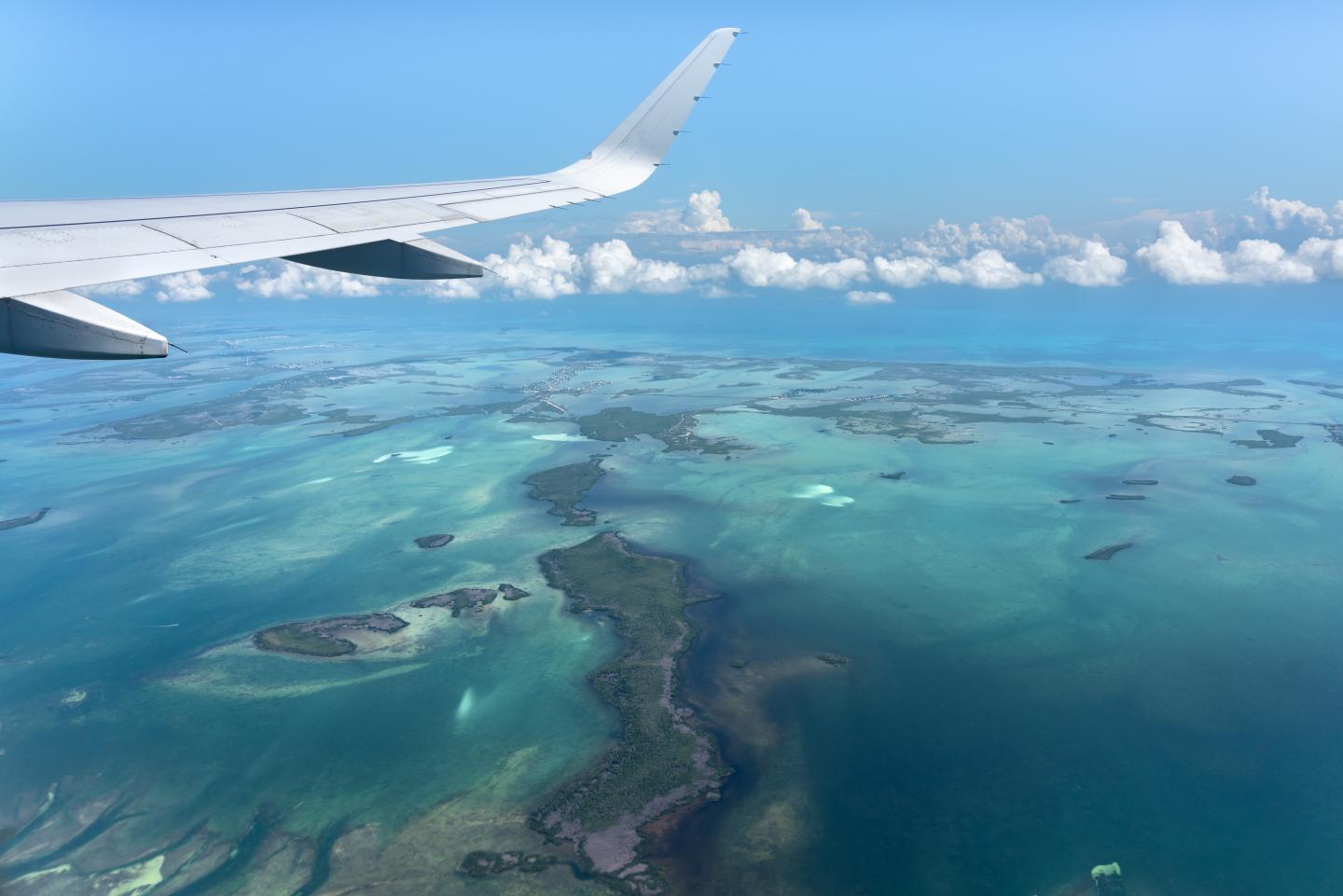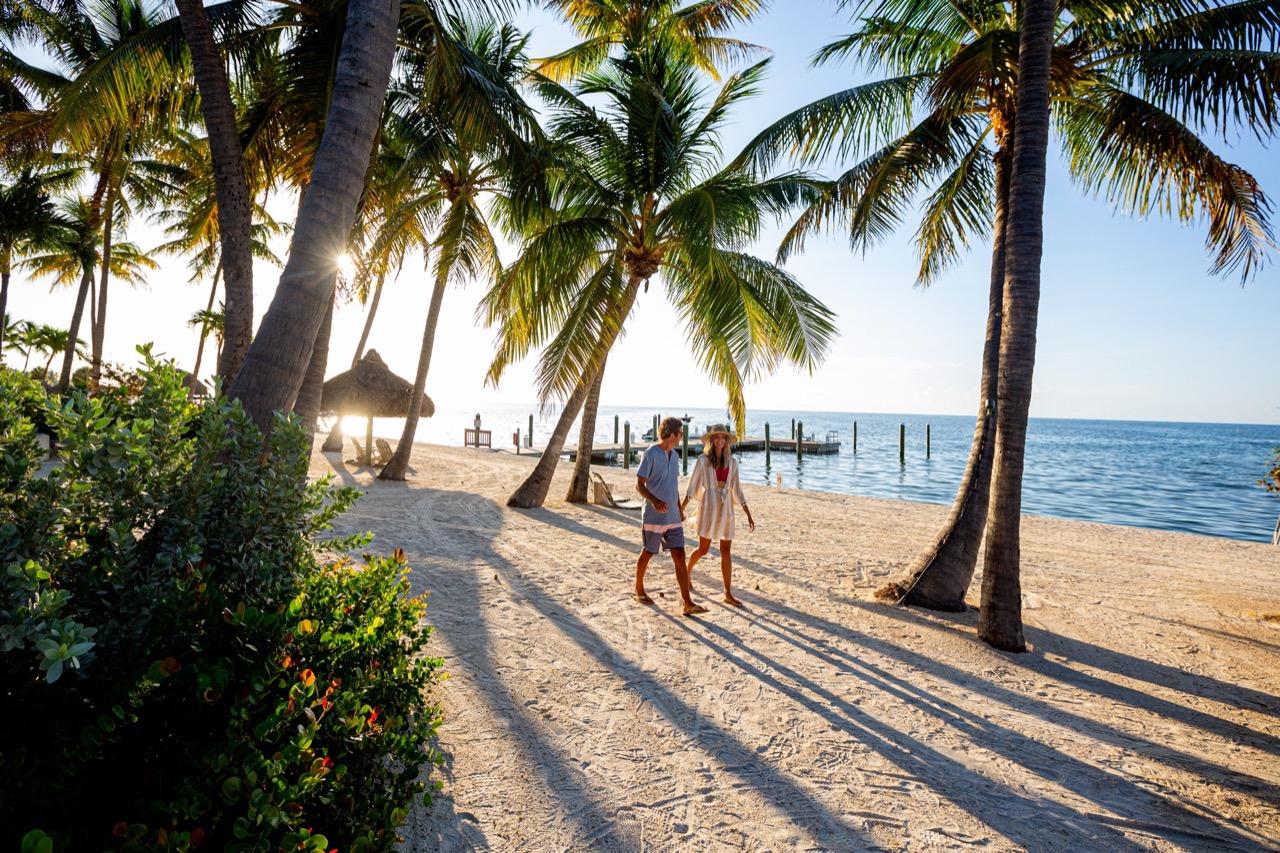
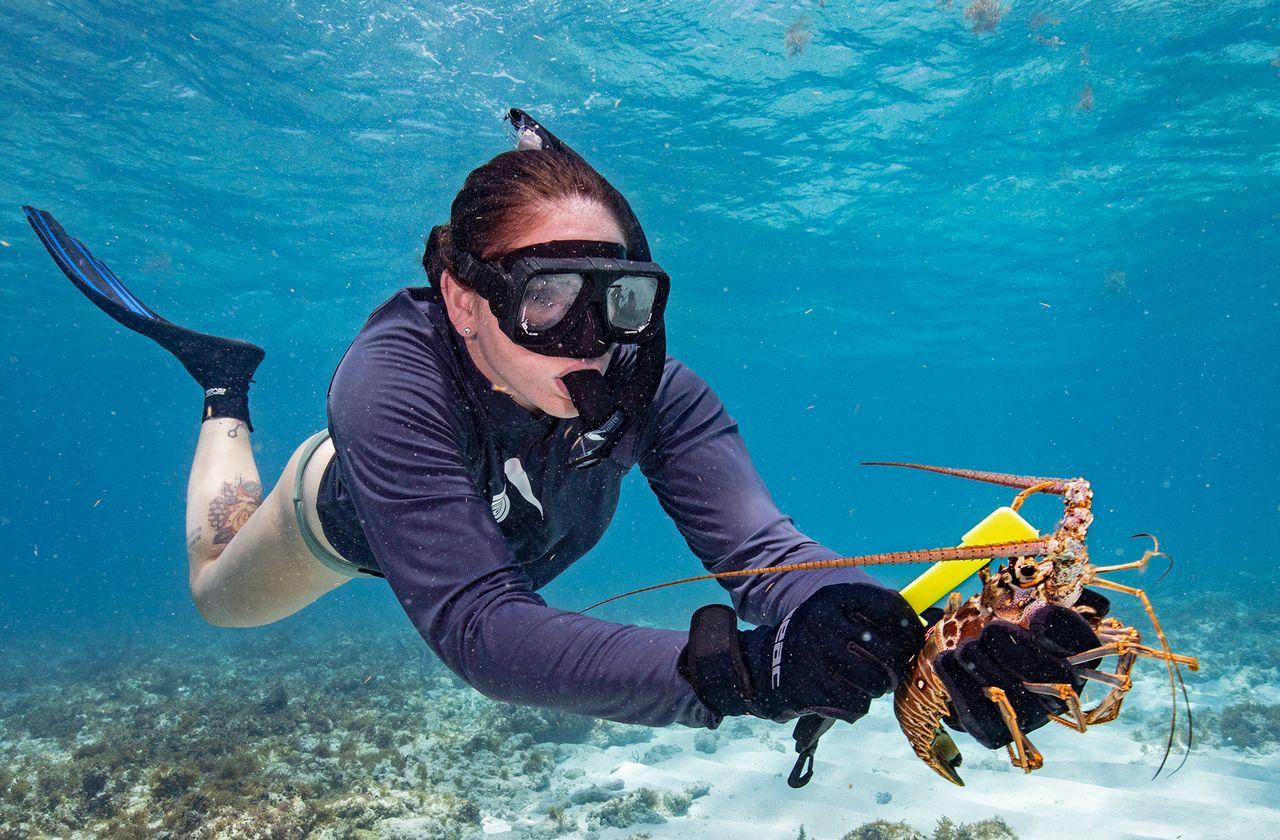
Florida Keys Lobster Season
Every year, thousands of locals and visitors dive into spiny lobster season, a favorite Florida Keys tradition. The Florida Fish and Wildlife Conservation Commission (FWC) encourages everyone, from first-timers to seasoned boaters, to enjoy the season safely and responsibly. Catch lobsters with care, protect the fragile marine ecosystem, and always follow safe boating and diving practices to keep this unique Keys experience thriving for years to come.
Know Before You Go
The regular lobster season runs from 12:01 a.m. Aug. 6, 2025 and ends at midnight March 31, 2026.
The 2026 lobster sport season, known locally as mini season for its short time duration, takes place July 29 through July 30 (last consecutive Wednesday and Thursday of July each year, for residents and non-residents).
Before you go, get the right answers to often-asked questions to better understand the rules. "What is legal size? How do I correctly measure? What is the daily limit in the Florida Keys?"
Local, state and federal agencies strictly enforce lobster harvest and boating safety regulations. It is important to know that when participating in the lobster season in waters surrounding the Florida Keys, daily limits in the Florida Keys and Biscayne National Park differ from those in other parts of Florida.
Florida Fish and Wildlife Conservation Commission officer Capt. David Dipre addresses those questions and other safety tips for the lobster sport season:
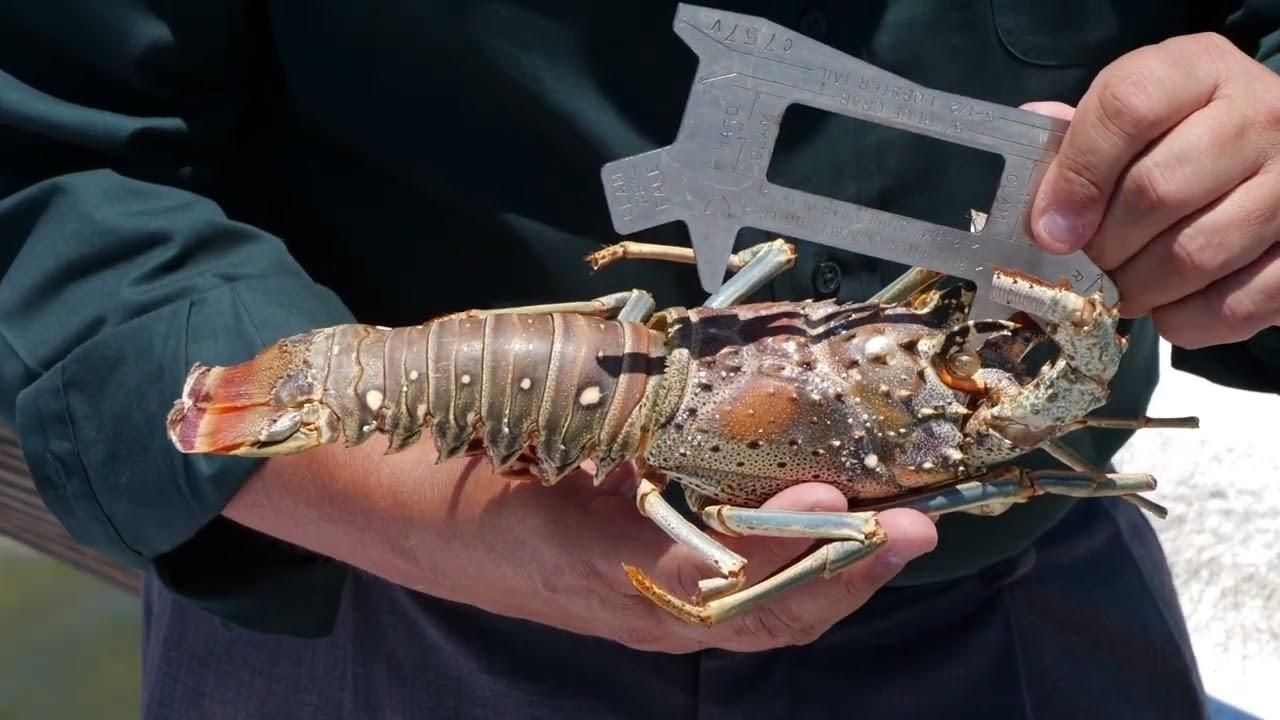
Understand the Regulations
Before you grab your net, make sure you know the latest lobster rules—staying informed keeps you (and the reef) out of trouble.
View Current Regulations for Recreational Harvest in Monroe County
A recreational saltwater fishing license and a lobster permit is required. No dumping fish or lobster carcasses in canals—use sealed trash bags or bins to protect the Keys’ waters.
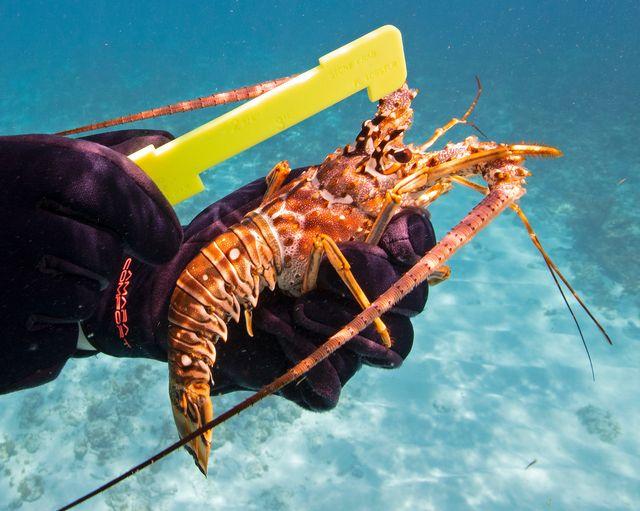
Best Practices for Safety & Success
- Measure each lobster correctly, and measure while still in the water. Carapace (hard part of shell) must measure greater than three inches.
- Use the dive flag. Put it up when diving, and take it down when underway. Divers must stay within 300 feet of their dive flag (or 100 feet if in a channel).
- Limit is six lobsters per person, per day, ALL day in Monroe County. No double-dipping trips.
- It is a felony to damage, molest or take lobster from traps in state or federal waters. Recreational trapping is prohibited.
- Check and replenish all necessary boat safety gear.
- Idle speed when within 300 feet of a boat displaying a dive flag.
- It is prohibited to touch coral, bump corals with dive fins, stand on coral and/or anchor your boat on coral.
Harvesting in Florida Keys Waters
During the two-day (July 29-30, 2026) sport season and the regular lobster season, (Aug. 6, 2025 - March 31, 2026), NO snorkeling or diving is allowed within 300 feet of residential or commercial shoreline. This includes canals and any public or private marinas. Night diving, defined as one hour after sunset and one hour prior to sunrise, is prohibited during the two-day sport season.
In Marathon, this local rule applies during the two-day mini season.
In Key Colony Beach, this local rule applies during the four days preceding mini season and continues until 10 days have elapsed after the opening of regular season.
In unincorporated areas of Monroe County and in Key West this local rule applies during the three days preceding mini season, the entirety of mini season and the first five days of regular season.
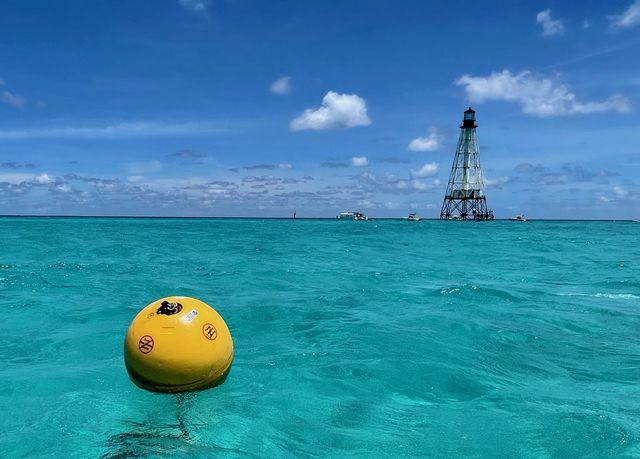
No Take Zones
Certain Florida Keys National Marine Sanctuary zones called Sanctuary Preservation Areas, Ecological Reserves and Special-use Research Only Areas are closed year-round for harvesting and are No Take Zones. These areas are marked by yellow boundary buoys. New Coral Reef Protection Areas within Biscayne National Park went into effect in 2020, closing all harvest of lobster in five areas. Download the free Marine Sanctuary Explorer app for locations of Sanctuary Preservation areas and much more.
Other CLOSED areas (year-round):
- Everglades National Park
- Dry Tortugas National Park
- San Pedro Underwater Archeological Preserve State Park, Islamorada
- Biscayne Bay Card Sound Spiny Lobster Sanctuary
- City of Layton
- Artificial Habitat in State Waters
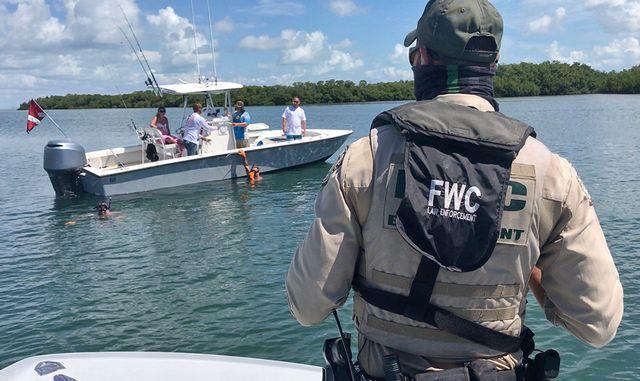
Before You Arrive and Dive
Be a safe, smart diver, especially during lobster season. In the excitement to catch a Florida spiny lobster, it’s easy to forget the basics. But skipping simple dive safety steps can lead to serious accidents, most of which are preventable with a little preparation.
Before you head out, make sure you’re in good physical condition and that your dive and boating gear are working properly. Florida Fish and Wildlife Conservation Commission (FWC) officers and other local agencies actively promote safe boating and diving—and enforce all Keys lobster regulations.
Many mishaps happen in shallow water because divers overlook core skills. A quick skills “refresher” and an equipment check go a long way toward a safe, enjoyable day on the water.
If you’re new to lobstering, take time to learn the right techniques—tickling and catching, proper lobster gauging, dive flag use, safe boating, and how to avoid the bends or shallow-water blackout. You’ll protect yourself, the reef, and the future of this beloved Keys tradition.
More Information
Boating Information
All the details you need: videos, regulations and tips to make your time on the water in The Florida Keys smooth sailing.
Diving & Snorkeling Information
All the details you need: videos, regulations and tips to make your Florida Keys diving or snorkeling outing safe, fun and memorable.
